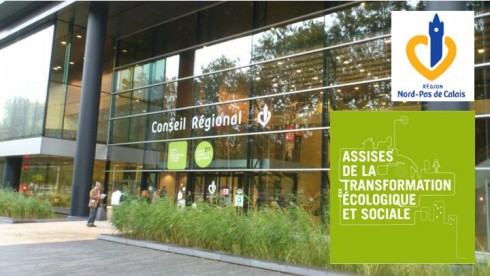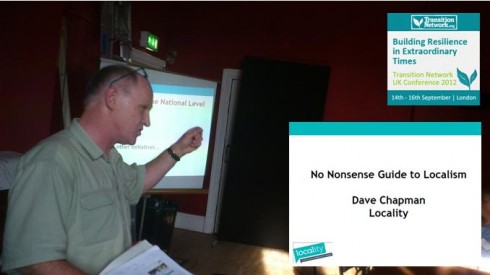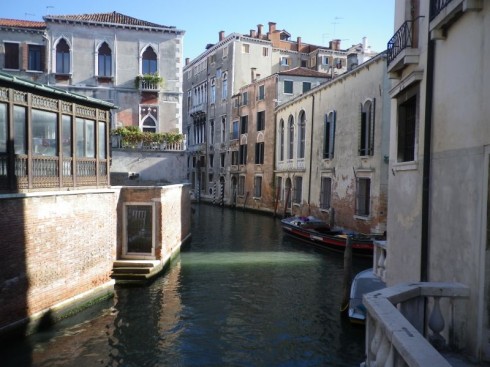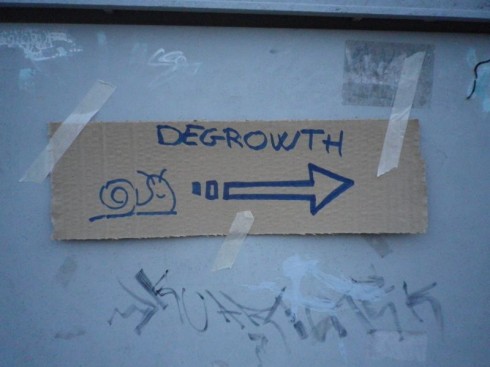Transition Culture has moved
I no longer blog on this site. You can now find me, my general blogs, and the work I am doing researching my forthcoming book on imagination, on my new blog.
Come find me at robhopkins.net
Archive for “Politics” category
Showing results 6 - 10 of 154 for the category: Politics.
8 Oct 2012

The question of what a top-down response to peak oil, climate change and economic contraction, and the regional rolling out of resilience, might look like, has been often discussed since the early days of the Transition movement. There was the short-lived Somerset experiment, there’s been interesting work in Stroud, Bristol, Nottingham and various other places, but nothing yet that is especially coherent and integrated. So it was with that in mind that I was really fascinated to be asked to go to Lille to speak at a one-day conference called ‘Assises de la Transformation Ecologique et Sociale’ organised by the Conseil Regional Nord –Pas de Calais, the regional authority for the Nord- Pas de Calais region.
Read more»
2 Oct 2012

The other interview I did at the Degrowth conference in Venice recently was with Silke Helfrich, one of the editors (along with David Bollier) of the excellent recently-published book ‘The Wealth of the Commons: A World Beyond Market and State‘, a collection of 73 articles by activists, academics and project leaders (I wrote one on resilience) on the theme of the commons. I recommend it. Silke gave a fascinating presentation at Degrowth 2012, so one day, after lunch, I caught up with her and asked to her to tell me more. Here, as usual, is the audio should you wish to listen to it, followed by the transcript.
Read more»
27 Sep 2012

One of my highlights of the 2012 Transition Network conference was Dave Chapman’s presentation on the new powers that the recent Localism Act and the changes to the planning system in England and Wales potentially give to Transition initiatives. I mentioned it in my conference round-up, but Dave has since sent me his slides, so you can download them (Locality No Nonsense Guide to Localism) and listen to the audio below, which Dave has re-recorded since the conference to get the most up-to-date version possible. If you live outside England and Wales this probably won’t be that interesting, but if you do, this is pretty much essential listening. My thanks to Dave for his slides.
Read more»
22 Sep 2012

The theme of Saturday, my last day at Degrowth2012 (although it is continuing tomorrow also) was ‘democracy’. I arrived late for the opening session, due to having been woken several times in the night by a very persistent mosquito, and after I had lovingly posted my write-up of yesterday, for you dear reader, I was running a little bit late. So I missed Marco Deriu, and arrived half way through the talk by Salvor Nordal, Chair of the Iceland Constitutional Council and the University of Iceland. She had been speaking about how the financial crash of 4 years ago in Iceland has led to a very creative process of reimagining democracy in Iceland.
Read more»
22 Sep 2012

The theme for today was work. The first plenary session featured four speakers. The first, Gilbert Rist from Institut Universitaire de Hautes Etudes in Geneva, was a pretty forthright dismissal of economics as it is practiced today. We need, he said, to free ourselves of the dominance that economics has over peoples’ will. There are two reasons why it is fatally flawed. The first is that it is based upon a mechanistic model which makes it impossible for economists to understand present ecological and environmental problems, especially in the biosphere.
Read more»






